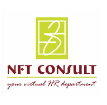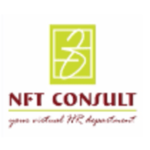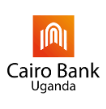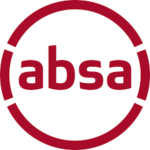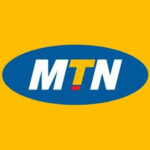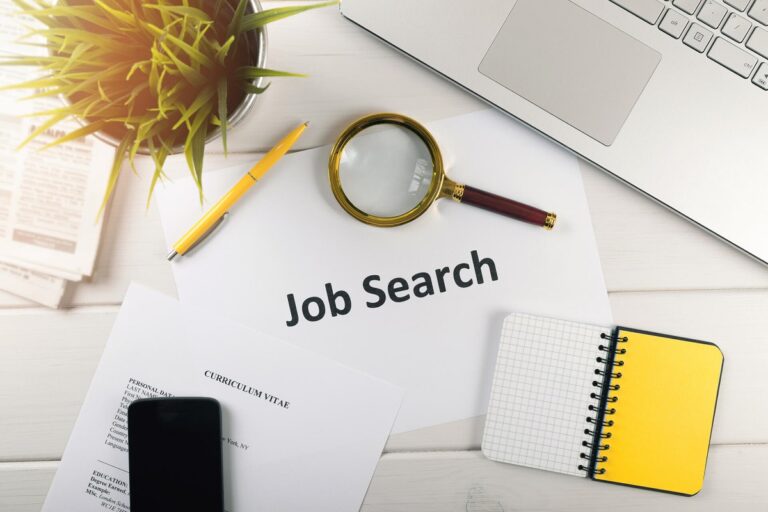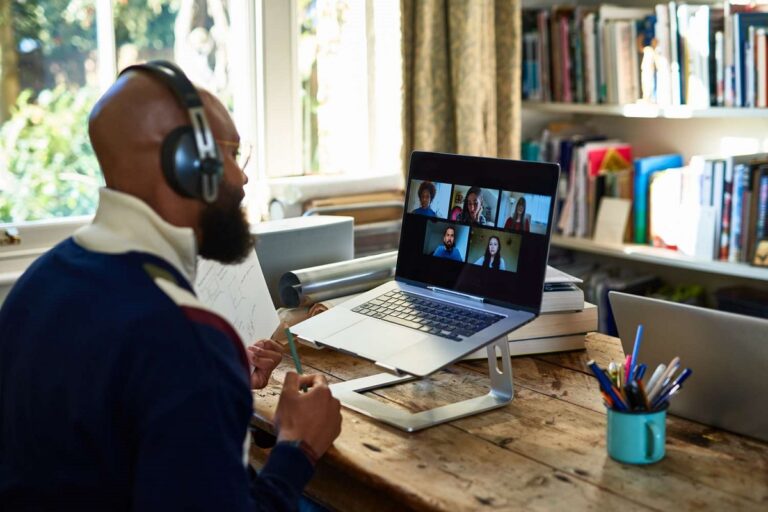Introduction:
Preparing for a job interview can be nerve-wracking, but with the right guidance, you can confidently tackle even the toughest questions. In this comprehensive guide, we’ll delve into the most common interview questions and provide you with expert tips on how to answer them effectively. Whether you’re a seasoned professional or a recent graduate, mastering these questions will set you apart from the competition and help you land your dream job.
Table of Contents:
- Introduction
- Understanding Common Interview Questions
- How to Answer Common Interview Questions
- Tell Me About Yourself
- Why Do You Want This Job?
- What Are Your Strengths?
- What Are Your Weaknesses?
- Where Do You See Yourself in 5 Years?
- Why Should We Hire You?
- Tell Me About a Challenge You Overcame
- What Motivates You?
- How Do You Handle Stressful Situations?
- Describe a Time When You Demonstrated Leadership Skills
- What Is Your Greatest Achievement?
- How Do You Handle Constructive Criticism?
- Why Did You Leave Your Previous Job?
- What Are Your Salary Expectations?
- How Would Your Colleagues Describe You?
- Describe Your Work Style
- What Do You Know About Our Company?
- Do You Have Any Questions for Us?
- Describe a Time When You Failed and How You Overcame It
- How Do You Prioritize Tasks and Manage Your Time?
- Conclusion
Understanding Common Interview Questions:
Before we delve into how to answer common interview questions, it’s essential to understand the purpose behind them. Interviewers use these questions to assess various aspects of your qualifications, personality, and fit for the role and company. By preparing thoughtful and articulate responses, you can demonstrate your suitability for the position and leave a lasting impression on the interviewer.

How to Answer Common Interview Questions:
1. Tell Me About Yourself:
This question often serves as an icebreaker, allowing the interviewer to learn more about your background and interests. When responding, focus on relevant experiences and skills that align with the job requirements. Keep your answer concise and structured, starting with a brief overview of your professional background, highlighting key accomplishments, and concluding with why you’re excited about the opportunity.
Example:
“Sure, thank you for the opportunity. I’m a seasoned marketing professional with over five years of experience in digital marketing and social media management. Throughout my career, I’ve successfully developed and implemented strategic marketing campaigns that have driven significant ROI for my previous employers. I’m particularly passionate about leveraging data-driven insights to optimize marketing strategies and enhance brand visibility. I’m thrilled about the opportunity to bring my expertise to your team and contribute to the continued success of your organization.”
2. Why Do You Want This Job?
This question allows the interviewer to gauge your level of interest and motivation for the role and company. Avoid generic responses and instead focus on specific aspects of the job, company culture, or industry that appeal to you. Demonstrate your enthusiasm and alignment with the company’s mission and values.
Example:
“I’m genuinely excited about the opportunity to join your team because of your innovative approach to product development and commitment to sustainability. As someone who is passionate about environmental conservation, I’m particularly drawn to your company’s initiatives to reduce carbon emissions and promote eco-friendly practices. Additionally, I admire your collaborative work culture and dedication to employee growth and development. I believe my skills and experience align perfectly with the requirements of the role, and I’m eager to contribute to your company’s mission.”
3. What Are Your Strengths?
When discussing your strengths, focus on qualities that are relevant to the job and demonstrate your ability to excel in the role. Provide specific examples or anecdotes that illustrate how you’ve utilized these strengths to achieve success in the past.
Example:
“One of my greatest strengths is my ability to effectively communicate and collaborate with cross-functional teams. In my previous role as a project manager, I spearheaded several successful initiatives by fostering open communication and leveraging the diverse expertise of team members. I’m also known for my strong problem-solving skills and attention to detail, which have enabled me to identify and resolve complex issues efficiently. Overall, I believe my ability to build strong relationships and drive results sets me apart as a candidate for this position.”
4. What Are Your Weaknesses?
When discussing your weaknesses, focus on areas for improvement that are not critical to the job and demonstrate self-awareness and a willingness to learn and grow. Avoid cliché responses like “I’m a perfectionist” and instead provide genuine examples of challenges you’ve faced and how you’ve worked to overcome them.
Example:
“One area I’ve been actively working on is delegating tasks more effectively. In the past, I tended to take on too much responsibility out of a desire to ensure everything was done correctly and on time. However, I’ve come to realize that by empowering team members and trusting their capabilities, we can achieve better results collectively. I’ve been actively seeking feedback from colleagues and implementing strategies to improve my delegation skills, such as setting clear expectations and providing adequate support and resources. I see this as an opportunity for growth and development, and I’m committed to becoming a more effective leader.”
5. Where Do You See Yourself in 5 Years?
This question assesses your long-term career goals and aspirations. While it’s essential to demonstrate ambition and drive, avoid coming across as overly ambitious or unrealistic. Focus on how the role aligns with your career trajectory and how you envision contributing to the company’s success in the long term.
Example:
“In five years, I see myself in a leadership role where I can leverage my skills and experience to drive strategic initiatives and mentor emerging talent. I’m excited about the opportunity to grow and develop within your organization and contribute to its continued success. I believe that by taking on increasing responsibilities and staying proactive in my professional development, I can make meaningful contributions to both the team and the company as a whole.”
6. Why Should We Hire You?
This question allows you to make a compelling case for why you’re the best candidate for the job. Highlight your unique qualifications, experiences, and strengths that differentiate you from other applicants. Emphasize how your skills and expertise align with the company’s needs and how you can add value to the team.
Example:
“You should hire me because of my proven track record of delivering results and my passion for excellence. Throughout my career, I’ve consistently exceeded performance targets and received recognition for my contributions to previous employers. I bring a unique blend of skills, including strategic thinking, problem-solving, and collaboration, that I believe are essential for success in this role. Additionally, my strong work ethic and commitment to continuous improvement make me a valuable asset to any team. I’m confident that I can hit the ground running and make an immediate impact on your organization’s goals and objectives.”
7. Tell Me About a Challenge You Overcame
This question assesses your problem-solving abilities and resilience in the face of adversity. Choose a relevant example from your past experiences and focus on the actions you took to overcome the challenge, as well as the positive outcomes that resulted from your efforts.
Example:
“One of the most challenging projects I faced was when our team was tasked with launching a new product in a highly competitive market. We faced numerous obstacles, including tight deadlines, budget constraints, and unexpected technical issues. To overcome these challenges, I took a proactive approach by conducting thorough market research to identify key trends and consumer preferences. I also collaborated closely with cross-functional teams to streamline processes and ensure clear communication throughout the project. Despite the challenges, our team successfully launched the product on time and exceeded sales targets by 20%. This experience taught me the importance of resilience and creative problem-solving, skills that I believe will be valuable in this role.”
8. What Motivates You?
This question helps the interviewer understand what drives you professionally and what you’re passionate about. Tailor your response to align with the values and goals of the company.
Example:
“I’m motivated by the opportunity to make a meaningful impact and contribute to something larger than myself. I thrive in environments where I can see the direct results of my efforts and know that I’m making a difference. I’m also motivated by continuous learning and growth, and I’m always seeking out new challenges and opportunities to expand my skills and knowledge. I’m excited about the possibility of joining your team, where I can apply my motivation and drive to achieve our shared goals.”
9. How Do You Handle Stressful Situations?
This question assesses your ability to remain calm and composed under pressure. Provide an example of a stressful situation you’ve faced in the past and how you effectively managed it.
Example:
“In my previous role, I was responsible for managing a project with a tight deadline and limited resources. Despite facing significant pressure, I maintained a calm and focused demeanor by prioritizing tasks, delegating responsibilities, and seeking support from team members. I also made sure to take breaks and practice self-care to prevent burnout. By staying organized and proactive, I was able to successfully complete the project on time and deliver results that exceeded expectations.”
10. Describe a Time When You Demonstrated Leadership Skills
This question allows you to showcase your leadership abilities and how you’ve successfully led teams or projects in the past.
Example:
“In my previous role as a team leader, I was tasked with overseeing a major client project that required close collaboration with multiple stakeholders. To ensure the project’s success, I took a proactive approach by establishing clear goals and expectations, delegating tasks based on team members’ strengths, and providing regular feedback and support. I also encouraged open communication and collaboration among team members, which fostered a positive and productive work environment. As a result of my leadership, the project was completed ahead of schedule and received positive feedback from the client.”
SEE MORE: Job Search Strategies that will Navigate the Path to Your Dream Career
11. What Is Your Greatest Achievement?
When discussing your greatest achievement, choose an example that is relevant to
the job you’re interviewing for and highlights your skills and abilities.
Example:
“One of my greatest achievements was leading a team to develop and launch a new product that significantly increased our company’s market share. I spearheaded the entire product development process, from concept ideation to market launch, and collaborated closely with cross-functional teams to ensure a successful outcome. Through strategic planning and effective project management, we were able to exceed sales targets by 30% in the first year of launch. This experience not only showcased my leadership and teamwork skills but also demonstrated my ability to drive results and achieve success in a competitive market.”
12. How Do You Handle Constructive Criticism?
This question assesses your ability to accept feedback and use it to improve. Demonstrate a positive attitude towards feedback and emphasize your willingness to learn and grow.
Example:
“I welcome constructive criticism as an opportunity for growth and self-improvement. In my previous role, I actively sought feedback from my colleagues and supervisors to identify areas for improvement and develop action plans to address them. I believe that feedback is essential for personal and professional development, and I’m always open to learning new ways to improve my skills and performance.”
13. Why Did You Leave Your Previous Job?
When explaining why you left your previous job, focus on the positive reasons for seeking new opportunities, such as career advancement, seeking new challenges, or a desire for professional growth.
Example:
“I left my previous job because I was seeking new challenges and opportunities for growth. While I valued my time there and learned a lot, I felt that I had reached a point where I was ready for a new challenge that would allow me to further develop my skills and contribute in a more impactful way. I’m excited about the opportunity to bring my expertise to your team and take on new challenges that align with my career goals.”
14. What Are Your Salary Expectations?
When discussing salary expectations, it’s important to research the industry standards and tailor your response based on your experience and the requirements of the job.
Example:
“I’m looking for a salary that is commensurate with my experience and the responsibilities of the role. Based on my research and understanding of the industry standards, I believe that a salary range of $X to $Y would be reasonable. However, I’m open to discussing the salary further and am more focused on finding the right opportunity where I can contribute my skills and grow professionally.”
15. How Would Your Colleagues Describe You?
This question provides insight into how you are perceived by others in a professional setting. Highlight positive traits that demonstrate your suitability for the role.
Example:
“I believe my colleagues would describe me as a reliable and collaborative team player who is always willing to go above and beyond to achieve team goals. I’m known for my strong work ethic, attention to detail, and ability to effectively communicate and collaborate with others. I take pride in building strong relationships with my colleagues and am always willing to lend a helping hand when needed.”
16. Describe Your Work Style
When describing your work style, focus on characteristics that align with the job requirements and the company’s culture. Mention your approach to teamwork, problem-solving, and time management.
Example:
“I would describe my work style as collaborative and results-oriented. I believe in setting clear goals and priorities and working closely with my team to achieve them. I’m also a proactive problem-solver and enjoy finding creative solutions to challenges. I’m highly organized and prioritize tasks based on their importance and deadlines, which helps me stay focused and meet project milestones effectively.”
17. What Do You Know About Our Company?
This question assesses your level of interest and preparation for the interview. Demonstrate your knowledge of the company’s mission, values, products/services, and recent developments.
Example:
“I’m very impressed by your company’s commitment to innovation and sustainability. I’ve been following your recent product launches, particularly the new line of eco-friendly products, and I admire your dedication to reducing environmental impact. I also appreciate your company’s emphasis on employee development and growth, as evidenced by your mentorship programs and training opportunities. I believe that my values align with those of your company, and I’m excited about the opportunity to contribute to your team.”
18. Do You Have Any Questions for Us?
When asked if you have any questions, use this opportunity to demonstrate your interest in the company and the role. Ask insightful questions about the company culture, team dynamics, or future projects.
Example:
“Yes, I have a few questions. Could you tell me more about the team I’ll be working with and the company culture? I’m also curious about the company’s plans for future growth and how this role fits into those plans. Additionally, I’d like to know more about the onboarding process and what support is available for professional development and advancement within the company.”
19. Describe a Time When You Failed and How You Overcame It
This question assesses your ability to learn from failure and turn it into a positive experience. Choose a failure that was not catastrophic and focus on the lessons learned and how you applied them to future situations.
Example:
“One failure that stands out to me was when I underestimated the complexity of a project and didn’t allocate enough time for thorough planning. As a result, we encountered several challenges during the implementation phase, which led to delays and increased costs. However, I took ownership of the situation and immediately sought feedback from team members and stakeholders to identify the root causes of the issues. I then developed a detailed action plan to address these issues and prevent similar problems in the future. This experience taught me the importance of thorough planning and proactive problem-solving, skills that have served me well in subsequent projects.”
20. How Do You Prioritize Tasks and Manage Your Time?
Use this question to showcase your organizational skills, time management techniques, and ability to handle multiple responsibilities effectively. Provide specific examples of strategies you use to prioritize tasks and meet deadlines.
Example:
“I prioritize tasks by assessing their urgency, importance, and impact on overall goals and deadlines. I start my day by creating a detailed to-do list and categorizing tasks based on their priority level. Then use time-blocking techniques to allocate dedicated time slots for each task, ensuring that I allocate sufficient time and resources to complete them effectively. Additionally, I’m proactive about identifying potential obstacles or bottlenecks and addressing them proactively to minimize disruptions to my workflow. I also utilize technology tools such as project management software and calendar reminders to stay organized and on track. By maintaining a structured approach to task prioritization and time management, I’m able to consistently meet deadlines and deliver high-quality work.”
Conclusion:
Mastering common interview questions is key to acing your next job interview and securing the job offer. By understanding the purpose behind each question and preparing thoughtful and articulate responses, you can effectively showcase your qualifications, skills, and fit for the role and company. Remember to be genuine, confident, and enthusiastic, and don’t forget to follow up with a thank-you note after the interview. With thorough preparation and practice, you’ll be well on your way to success in your job search journey.




